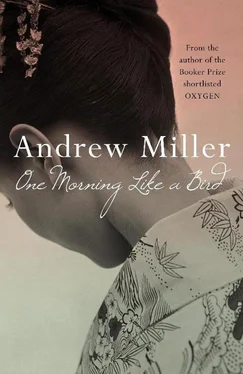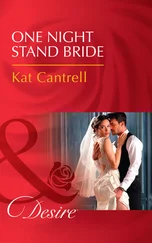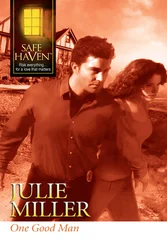‘I don’t read as much as I used to,’ says Yuji. ‘I have become quite busy.’
‘It’s nice that you’ve come,’ she says. ‘I don’t really know why you’ve come. Perhaps it doesn’t matter.’
He opens his mouth. She silences him with a movement of her hand. ‘Don’t explain,’ she says. ‘I’m not angry with you. I was at first. Then I was sad. Now all I want is for the baby to be safe. You see, it’s really going to happen. It’s not just an idea, something to amuse ourselves talking about. It’s a real baby who’s going to grow up, who’s going to . .’ Her face creases. In Yuji something comes undone, some strapping of the heart. He would like to yell, let out a shout so loud the men on the fishing boats would hear him. He steps towards her, tries to crouch at her feet, but his knee is too sore, too stiff. He stands again, wincing.
She wipes her eyes, grins at him. ‘Look at us,’ she says, ‘with our sticks.’
He visits every day, sometimes for an hour, sometimes for a whole morning or afternoon. They meet in her room or in the small dining room at the back of the house, or, on fine days, on the bench between the eucalyptus trees in the little salt-stunted garden. When she is not too tired and her ankles are not swollen, they walk in the winter sunshine, sticks in hand, Beatrice trotting contentedly at their heels. The awkwardness of the first encounter, of the second and the third, the confidences that awkwardness inspired, gives way to a gentle, mutual reticence. They talk together, easily, fluently, but sound, even to themselves, like strangers enjoying an unexpected friendship at a holiday resort. Little is said about the recent past, the three seasons since they knelt side by side in the dark to watch Kasane . Little is said about the life that sits or walks with them in her belly. And when, now and then, a silence between them fills with the weight of unspoken thoughts, there is always something to rescue them, some task, some antic of the dog, some intriguing or comical behaviour from one of Miss Ogilvy’s ‘girls’.
Of these, there are six, all foreigners: Sandrine, Rose, Kitty, Eva, Natasha, Mary. In the beginning, Yuji has difficulty telling them apart. All seem slightly blurred by strong perfume, and all, dressed in fabrics delicate as tissue paper, seem always to have just emerged from bed or bath. They are kind to him, treat him, he thinks, like a pet. He does not, after his second visit, expect to hear one of them play the piano.
That the academy might be an unsuitable place for a woman in Alissa’s condition, a surprising place for Monsieur Feneon to be connected to, an altogether curious institution with a way of doing things that would — or so he guesses — not be much understood in the more traditional parts of the pleasure quarters . . these are questions he turns over, with no great urgency, like loose change in his pocket. After all, there is no one to discuss it with, no one, yet, to be scandalised. And who is he — a person Feneon might have felt entitled to shoot — to raise so much as an eyebrow?
It is Rose (or perhaps Natasha) who tells Yuji, four days before the term Miss Ogilvy spoke of has expired, about the breaking of Alissa’s waters. It is just after midday. The girl is helping him with his coat, tugging it clumsily off his shoulders in her excitement. ‘Isn’t it blissful?’ she says. ‘We were afraid you’d come too late.’
He waits in the empty billiard room, looking at the painted nymphs and the dimpled, slyly smiling wives of European aristocrats, and wonders about this water they contain that breaks (like porcelain? Like a wave?).
After half an hour the door by the fireplace opens and Dr Saramago comes in. He is wearing a pearl-grey three-piece suit. He is fat and surprisingly young. He has been upstairs with Alissa. ‘Not worrying,’ he says, breezily. ‘Baby later. Time for last sleep.’ He laughs (as if out of a well of cooking oil in his throat), takes a fur coat from the back of a chair, pats Yuji’s shoulder and leaves. A few minutes later Miss Ogilvy appears, crisp white apron, a dress with rolled sleeves, a rolled cigarette in her left hand.
‘There are contractions,’ she says, ‘but true labour has yet to commence. You may go and see her.’
Alissa is in the bed. Her head, her narrow shoulders are raised on a heap of pillows. There is a fire in the grate, and since his visit the previous day a table has appeared at the end of the bed, a card table with towels on it, bundles of white gauze, a tin basin, a large pair of scissors. For two nauseating seconds Yuji remembers Saburo’s story about the doctors in China. Now, then, gentlemen, shall we start with the appendix ?
‘Saramago,’ he says, ‘looks like an American gangster.’
She manages a smile. ‘He’s nice,’ she says. ‘He brings us little custard cakes to eat.’
Under the sheet, her body radiates a kind of imminence. The whole room is charged with it, a tension that has reached its perfection.
‘I suppose it will be soon now,’ he says.
‘Yes,’ she says. ‘Will you be here?’
‘Here?’
‘At the house?’
‘Yes. If you would like me to.’
‘Yes,’ she says, then shuts her eyes, clutches a corner of the sheet in her fist, moans. It is a sound she made the night they were together in her room in Kanda. She turns to Yuji, no attempt to hide the fear in her face. ‘What if I can’t do it?’ she says. ‘Saramago says he has things to help me. Miss Ogilvy says at my age it will be easy. But what if they’re wrong?’
‘They’re not,’ says Yuji, suddenly appalled at how little there is he can do for her. He steps up to the bed, reaches his fingertips to where the sheet is tented over her belly. ‘Shall I fetch Miss Ogilvy?’
She nods. ‘You don’t need to love me,’ she says as he opens the door. ‘But you must love the child. Will you love the child?’
At three o’clock Dr Saramago returns. He smells of lunch, of China Town. He is upstairs for fifteen minutes, then comes down and leads Yuji to the billiard table. Yuji is good at billiards — he has had more time than most to practise it — but Saramago beats him easily.
‘Next time, shogi ,’ says the doctor, grinning and carefully tying a little scarf around his throat. When asked about Alissa, about the baby, he makes an unrolling gesture with his right hand, something that might be readily understood in Porto or Lisbon but which tells Yuji nothing.
At six o’clock the doors are opened and the first of the evening’s visitors arrive, a pair of naval officers, glamorous in caps and long military coats. Yuji is sent to wait in a room on the first floor of the tower. From the window he can see the lights of the neighbouring building. He buttons his jacket. There are radiators in the house, brass concertinas that gurgle and rattle like live things but give off very little useful heat, certainly not enough for the high-ceilinged rooms of the academy. He looks for something to read, finds in the bucket by the empty fireplace a newspaper from May 1938, reads a story about the fall of Swatow, then drops the paper on the boards and begins to pace. Behind a curtain in the far corner of the room is a painted door. He tries the handle. The door is not locked but leads only into a cupboard, its floor piled with women’s shoes, women’s boots. On a shelf at the back is a row of featureless wooden heads each with a coloured wig on it — black, blond, curly red — and from a hook below the shelf hangs a coil of buckled leather he mistakes at first for a horse’s bridle.
In the billiard room, drunken voices sing along to the gramophone. (Is the music louder than usual tonight? Is there something the gentlemen should not be allowed to hear?) When it stops, Yuji dozes in a chair, wakes several times imagining his name has been called, then falls into a deeper sleep from which he is roused by someone standing over him with a lantern — Father, perhaps, come to tell him it’s time for his watch on the platform.
Читать дальше












